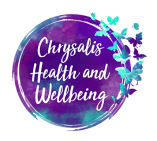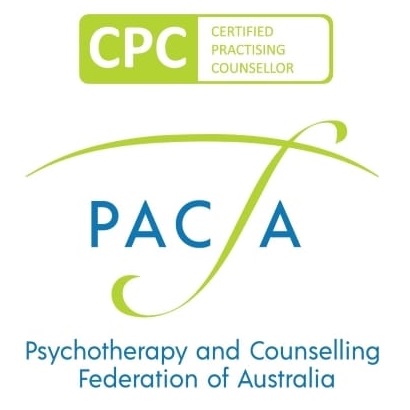People spend a lot of time and money dealing with physical symptoms, in order to feel and look better.
We tend to trust without question that seeing the doctor for an ailment is going to produce some sort of relief, or cure.
We go to the gym and exercise class in full trust that it’s going to improve our overall health and figures.
We go to the dentist and trust that they will help us to keep our teeth and gums maintained (and do necessary repairs when we have been a bit neglectful).
Our emotional and mental wellbeing, however, tend not to receive the same attention.
Somehow, there seems to an assumption that therapy will involve years of commitment, or that it won’t work. There is still a huge wall of stigma that therapy is seen as showing you have a weakness, and is still seen as an expensive and optional luxury. It can be easy to believe that it’s easier to battle through the problem ourselves, or with some advice from well meaning, but sometimes misguided friends and family.
Heres a great infographic which shows why therapy is good for everyone!
Therapy v Medication
Medicalisation of symptoms has become the norm in our Western society. Certainly, there are times when pharmaceutical intervention is critical, but this approach is just placing a bandaid on the symptoms, so that the person can function.
Symptoms are the effect, not the cause.
Without seeking the root cause of the problem, people can get stuck in a cycle of ever-increasing medication dosages, which can impact hugely on quality of life.
In order for therapy to be effective, the client needs to be engaged in the process, and be in a regulated state. If someone is in either a hyper-aroused state (agitated, anxious) or hypo-aroused state (sleepy, low mood, dissociated) the brain and nervous system cannot effectively stay regulated and present for effective therapy to occur.
This can lead to overwhelm or shut-down, which intensifies the client’s negative experience. However, therapy can assist clients not only learn to regulate their nervous systems, it can also help them to become less reliant on medication, because the underlying issues that create an unbalanced state of being can be dealt with and processed so the symptoms abate naturally.
What About Therapy Works Specifically?
Therapy offers an almost sacred space where a therapist, who has been trained in the art of deep listening, along with non-judgemental attitude, and unbiased opinion, supports the client to bring the unconscious to the conscious for processing.
This allows you to create better choices for yourself based from a place of deep knowing and trust, rather than reactive fear.
As explained in the article ‘Does Talk therapy really work?’, Diane Barth explains that it ‘helps clients find solutions not only to specific symptoms but also to difficulties at work, in their social lives, and with self-esteem’.
Therapy offers long term solutions. Clients learn a great deal about themselves and, with this new self-awareness, are able to create changes for themselves, even long after the therapy sessions end.
These changes are made possible because, with the help of the therapist, clients are able to discover patterns in their emotions, thoughts and beliefs. The insight gained about themselves enables the client to regulate themselves more effectively in order to make changes and create a life feeling more in control and with deeper meaning and purpose.
You may be surprised to learn that what actually determines how well therapy progresses, is not about the number of different modalities the therapist uses, and not the number of years’ experience a therapist has gained. Nor is it the number of times someone attends therapy.
The one main determinant is the strength and quality of the relationship between therapist and client, otherwise known as the therapeutic alliance. It is the main predictor of positive change in the therapy process
Gaining feedback from clients about the effectiveness of therapy can also decrease drop out rates and can actually improve the effectiveness of counselling.
It Doesn’t Have To Mean Re-Hashing The Past Anymore
Therapy has come a long way from the years spent on the couch being analysed whilst re-hashing the past and being re-traumatised. There are several very effective methods for changing thoughts, beliefs and for processing trauma.
To some degree we are all traumatised, and our emotional and mental wellbeing can benefit hugely by identifying and processing subconsciously held beliefs and memories that no longer serve our adult selves.
It is not about trying to forget the past, for that is impossible, but finding ways of creating a better future.
What Methods Actually Help to Make Therapy a Success?
There are a multitude of techniques that have been developed that help to speed up the therapy process. Here are just a few that are highly effective:
In one study conducted on the effectiveness of Somatic Experiencing, which is a process of integrating and dissipating the effects of trauma using a bodily approach, there was found to be significant improvement in quality of life after 15 sessions (15 sessions is very quick to process trauma).
EFT or ‘tapping’ is gaining more attention as an outstanding method for dealing with many different life issues. Tapping is a process which includes tapping on various meridian points on your body, which act as a reset button to settle the energetic pathways of the body.
EFT can assist with fears, old belief patterns, illnesses, injuries, pain (emotional and physical), trauma, and self-esteem.
There are many consistently positive anecdotal and scientific based outcomes of EFT, including being rigorously tested in the ‘gold standard’ of research: the randomised control trial.
Reiki, or energy healing, holds up as an effective method for reducing fear, panic, pain, stress, along with more chronic conditions such as anxiety and depression, fibromyalgia, and long term health conditions.
As an energy healing practitioner myself, I can attest to a number of anecdotal testimonies of clients whose ailments have greatly diminished.
I have also discovered that trauma resides not just in the physical body, but also in the energy body, and this can also be treated. However, I always strongly encourage a holistic approach to wellness that involves body, mind and spirit.
Therapy works on many different levels – physically, mentally, emotionally and spiritually and can make a profound difference to all areas of your life.
Get in touch below to find out how therapy can assist you.
About Kate
Kate is a counsellor and energy healer based in Sydney’s Hills District. She has identified a common thread amongst trauma sufferers; and that is that they appear to suffer from similar physical symptoms and ailments, along with a history of unresolved trauma of some description. These can have massive and devastating impact in all areas of a person’s life. Kate supports her clients on their healing journey in a holistic sense. This involves helping to process and resolve trauma in the body, help clients choose appropriate nutrition, and address lifestyle issues and old belief patterns that no longer serve them. Clients report feeling calmer, more in control, and with greater self-awareness able to make self-affirming life decisions from their core of inner knowing.






